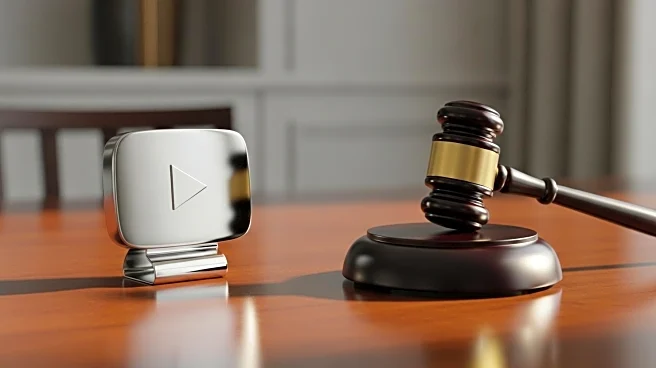What's Happening?
YouTube has agreed to pay $24.5 million to settle a lawsuit brought by President Donald Trump following the suspension of his account after the January 6, 2021 Capitol riot. The settlement, which does not admit liability, resolves a legal battle that began in July 2021 when Trump claimed that Meta violated the First Amendment by banning him. The settlement specifies that $22 million will be directed to the Trust for the National Mall to support the construction of a ballroom in the White House, while $2.5 million will be paid to other plaintiffs, including the American Conservative Union.
Why It's Important?
The settlement is significant as it marks the resolution of one of several lawsuits President Trump filed against major technology companies, including Meta and Twitter, for suspending his accounts. These legal actions highlight ongoing tensions between political figures and tech platforms over content moderation and free speech. The financial impact on Alphabet, Google's parent company, is minimal given its substantial market value, but the settlement underscores the influence and challenges tech companies face in balancing platform policies with political pressures.
What's Next?
The settlement comes ahead of a scheduled court hearing on October 6, 2025, to discuss the case further. With Trump's YouTube account restored since 2023, the focus may shift to how tech companies will handle similar situations in the future, especially as political figures continue to leverage social media platforms for communication. Stakeholders in the tech industry may need to reassess their policies and strategies to navigate the complex landscape of political and legal challenges.
Beyond the Headlines
The settlement reflects broader ethical and legal questions about the role of tech companies in regulating speech and the potential implications for democratic discourse. As tech platforms continue to wield significant influence over public communication, the balance between free speech and responsible moderation remains a contentious issue. This case may prompt further discussions on the need for clearer guidelines and accountability measures for tech companies in managing politically sensitive content.









